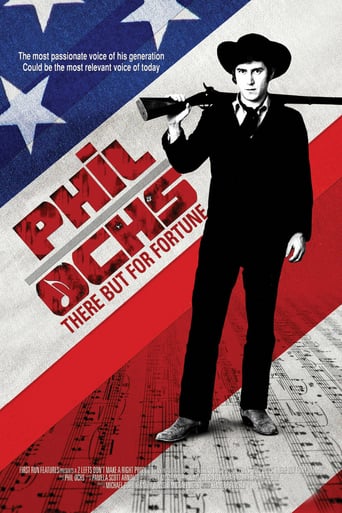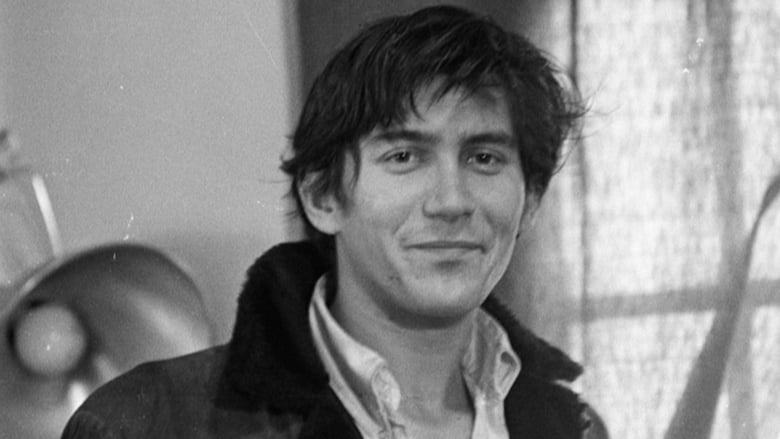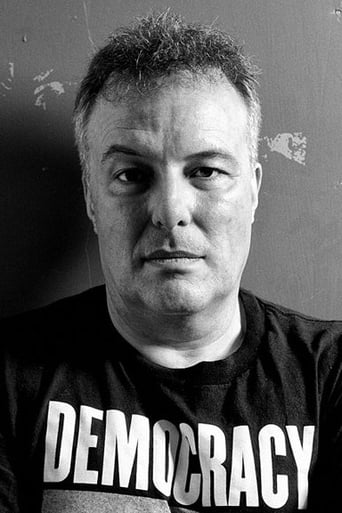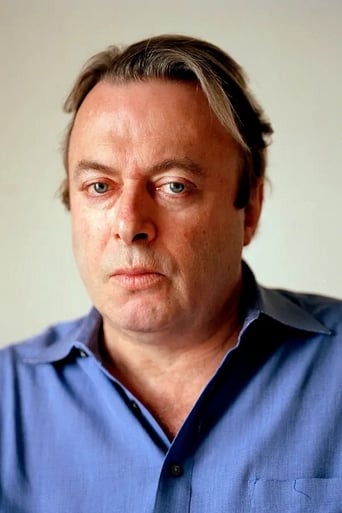

Phil Ochs: There But for Fortune (2011)
From civil rights to the anti-war movement to the struggles of workers, folksinger Phil Ochs wrote topical songs that engaged his audiences in the issues of the 1960s and 70s. In this biographical documentary, veteran director Kenneth Bowser shows how Phil's music and his fascinating life story and eventual decline into depression and suicide were intertwined with the history-making events that defined a generation. Even as his contemporaries moved into folk-rock and pop music, Phil followed his own vision, challenging himself and his listeners. Not one to pull punches, Ochs never achieved the commercial success he desperately desired. But his music remains relevant, reaching new audiences in a generation that finds his themes all too familiar.
Watch Trailer
Cast
Reviews
Sick Product of a Sick System
Excellent, Without a doubt!!
Best movie ever!
One of the worst ways to make a cult movie is to set out to make a cult movie.
"Liberty and Justice For All"...... Originally from El Paso, Texas - Phil Ochs (December 19, 1940 – April 9, 1976) was a protest singer and songwriter who was known for his sharp wit, sardonic humour, earnest humanism, political activism, insightful lyrics, and distinctive voice. He wrote 100s of songs in the 1960s and 1970s and released 8 albums.Ochs strongly believed that his generation would change the world. He performed at many political events during the 1960s counterculture era, including anti-Vietnam War and civil rights rallies. Ochs described himself as a "left social democrat" who became an "early revolutionary" after the protests at the 1968 Democratic National Convention in Chicago led to a police riot, which had a profound effect on his state of mind.This "There But For Fortune" documentary is definitely a worthwhile look at the man and the era in which he stood for in American history.
The other reviewers seem to be reviewing Och's music or the 60's protest movement itself. I'm going to review the film, which was only so-so. I'm a great fan of documentary films, but this one was not exceptional. The inclusion of so much archival footage was interesting and the movement was fairly accurately portrayed. But as a biography, it felt incomplete to me and could have used the inclusion of opinions not just by his contemporaries, but professionals who could have offered insight into his psychiatric problems. Indeed, every time the film got close to looking at any issue in depth, it skittered away to some other topic, so I was left frustrated. In the end, I felt I'd watched just another"lite" celebrity biography like the ones I saw on A & E during the two years I owned a TV. A great biographical film leaves me with insight into not only the subject but a deeper understanding into the human heart.Examples of missed opportunities: at one point in an old interview, Ochs says he's exploring contrapunctal music. Here, you could have inserted a music theory prof pointing out in what song that manifested. Or, examine what was it like to be "just a folkie" but have aspirations to write more complex music. There really is no information about his song-writing except he liked to do it. This failing of the film extends to the personal. There's one sour, wry woman from his past who seems the only one willing to be critical of Ochs's whoring, narcissism, etc., but despite having interesting things to say, it's hard to credit her insights for she comes off as just bitter. Why not find some psychologist willing to talk about narcissistic personalities, coupled with the manic depression and alcoholism, so that we can see how Ochs deteriorated so badly? (and that was new information for me--he had severe psychotic breaks at the end of his life) Or surely some psychologist has written/researched about how, when the Vietnam War ended and Nixon had resigned, there was widespread depression among protest cats because they felt superfluous--interview that person rather than only Joan Baez who mentions it but not in a greatly illuminating way. Instead, they relied mostly on family members and close friends, who had to a large extent mythologized him, the way we all do over the years, creating narratives that match our internalized metanarratives rather than remembering accurately. For instance, they skimmed over Ochs's frequenting of whorehouses worldwide, and while it's good they included such ugly behavior and didn't try to paint him as holy and purely wonderful, the interviews with the ex-wife (still-wife? the movie doesn't tell us how or if the marriage ended) had stopped by that point in the film--gee, I'd like to have known what she felt when she figured out he was doing this (just a list of STDs he brought home would have been illuminating). I also wondered if he had been autopsied and there was brain damage from syphilis also adding to his severe mental deterioration at the end of his life. So much good info to mine, but the film skitters along the surface.Perhaps the reason for that is that they were trying to fit it into a time limit, and if so, were willing to sacrifice clarity or better art for commercial considerations...but if so, perhaps cutting out a few of the old protest march performances would have allowed for more depth.All the interviews were talking heads indoors; the film would have been more visually interesting had they varied this.The end song over the credits was a great choice. Van Ronk's performance raised goosebumps for me.Some good, some bad, but for me not a satisfying whole.
Documentaries can offer more than just their subject matter; they have the power to thrust a personal story of a well known or abstract figure into a greater, historical, microcosmic portrait, or to turn a historical triumph or tragedy into something we can experience almost personally. This film seems to accomplish both of these feats. I've respected and enjoyed Phil Ochs' music and message, in the sense that the melodies are pleasant and heartfelt, and the message is in turns earnest and bitingly sardonic. To a person growing up with punk music like myself, this seems like a logical precursor. But this film takes the story of another widely forgotten musician and gives us a portrait of a wildly ambitious human being, a flawed hero, and the explosive world around him. As a rampant idealist myself, the story is both encouraging and all too heart-breaking. It hits all of us would-be activists and creative, motivated, inspired, loving seekers of change, right in the heart. In the end of this narrative, the world didn't bend for this one ego, after all; and it may have helped crush the very soul of this talented "egomaniac" (as a friend calls him).And yet, he fought anyways. Ochs straddled a thin line between impassioned activist and self-indulgent artist, and in the ensuing battle, between integrity and ambition, between idealism and caution, he lost his family, his voice, and his own sanity. Yet there's a fascinating counterpoint that one can draw from this film: we can clearly see which side of this battle that artists like Dylan fell on--the personal, apolitical side which made broad illusions but focused on staying more accessible (though less and less vital) than Ochs and his blatant, confrontational intelligence. But I think that this is the true yet sadly forgotten and maligned legacy of the 1960s; not the crappy, burned-out stoner rock, psychedelic escapism and superficial "groovy love" garbage, but the real radicals trying to affect change, and their various approaches, successes and failures. And this is where the film serves as an important historical/cultural record. We all know about Civil Rights, the War, and the anti-war movement, as separate events. This film ties them all together with one singular character, who is himself, successor to another forgotten tradition; the activist/troubadour. But he is never really a hero, but a human being, and this is another strength of the film: it doesn't seek to merge all of the "Phil Ochs" narratives into a consolidated image, but each friend, family member or acquaintance is allowed to recall their impressions of Ochs and the folk scene, stories which are often, at times, very much at odds. Was his suicide a natural progression from his alcoholism? Was it a family history of mental illness? Or did his "defeat" at being no more than an ineffective pop artist, in the shadow of real heroes such as Guevara and his executed Chilean folk hero, crush him? We get different impressions from different stories, and the film doesn't try to answer all of the questions. It gives you music, words, live performances, juxtaposed with the scenes of the real life change, the volatile condition of the world, as it happened around an artist. And it was this change that began long before the self-congratulatory hippies spent their summers of self-love seeking chemical bliss. The modern parallels are frightening and, quite frankly depressing, as it looks as if my generation will never produce anyone so high-profile and well known, with that much intelligence, courage and heart. And if they do exist, the media industries certainly won't bother giving them a voice. We now live in a world that seems to sit back, and look cool and detached as the same injustices take shape all around us. And if that doesn't make this film more relevant than ever, I'm not sure what could.
Being 58 years old, I was quite aware of Phil Ochs in the 1960's. I can testify that the movie does a good job of retelling things that were widely known by anyone active in socialist politics in the 1960's about Phil Ochs. He was a dedicated socialist and wrote some excellent political songs as well as a few sweet ones. In the 1970's, especially the last five years of his life, he disappeared from my radar. I was terribly shocked when I read about his death. At the time, there were a lot of confused ideas about his death floating around. I never quite understood it. This movie does a good job of clearing things up.Not nearly as prolific, wide-ranging, clever or popular as his rival Bob Dylan, Ochs political songs, like "I Ain't a Marching Anymore," or "Here's to the State of Mississippi" or "There, But for Fortune" hold up well against all but the best of Dylan's political songs, "Masters of War," and "Ballad of Hattie Carroll." The film reminds us that Ochs was there at the very beginning of the folk scene in 1961 with Dylan. He was more than a Dylan wannabe, but was actually an influence on Dylan for the first two or three years. The "Greatest Hits Album" was when I tuned him out, as a lot of people did. He seemed to be imitating Dylan in selling out the socialist movement. This movie suggests that he was spoofing artists that sold out. I don't quite remember it that way, I took it seriously, but I'm willing to believe the movie that it was tongue in cheek. The rebellion and social revolution of the 1960's was extremely complex and this film does a nice job of simplifying it. It was produced by his brother/manager among other friends and family members and I think Phil Ochs would not have disagreed with much in it.For those who haven't heard of Phil Ochs and his songs, you're in for a big treat. See it as soon as possible. For those who were there with him, see it and remember some of the things we were fighting for.


